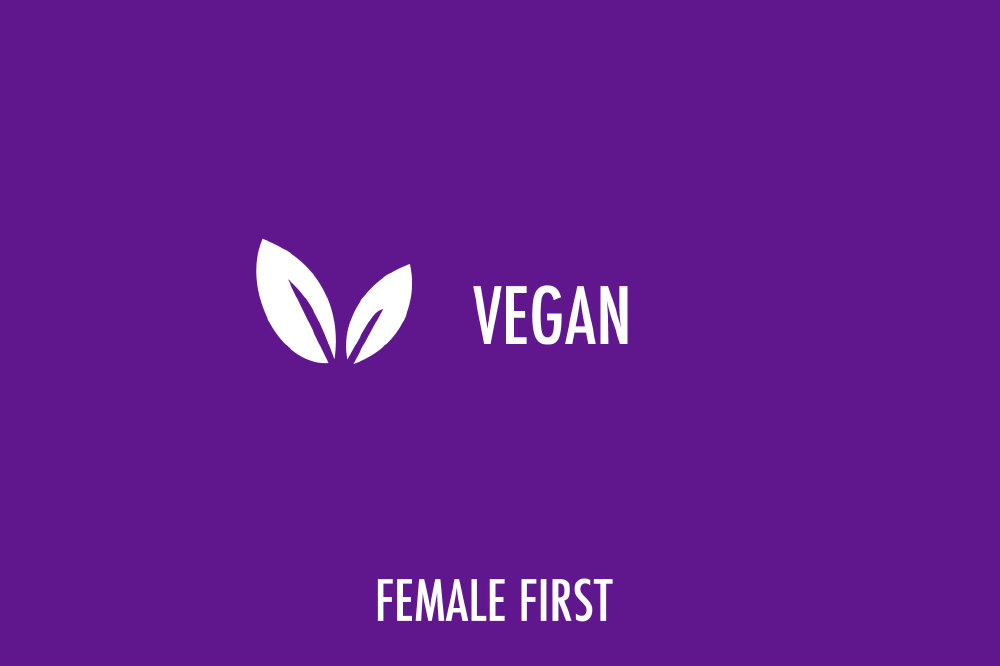A new report has outlined insights into the future of meat eating, revealing that half the UK will be vegetarian or vegan in less than 20 years as the impacts of climate change increase. Meanwhile, selfie-obsessed Generation Z[1] will no longer think of meat as masculine and will be too ashamed to buy it in public, predicts food futurologist Dr Morgaine Gaye.

Image courtesy of Unsplash
The new report, commissioned by No Meat May – a registered charity that challenges people to eliminate meat from their diets for 31 days – also reveals we have fewer than 30 years to eat less meat if humanity and life on the planet is to survive.
While meat consumption continues to rise in developing countries, in the UK it is estimated that by the beginning of next year, 16 million people will be meat free, and there are a number of reasons why this is such a continuing growth trend.
“With much more social acceptance normalising meals without meat, plus the extensive availability for alternatives, it follows that we can expect to see continued changes in the way consumers shop and eat.” says Dr Morgaine Gaye, as she shares her predictions.
The report focuses on four key areas:
Meat and Culture
Generation Z could also be the generation to create real change and turn around Britain’s meat-eating habits;
“The amount of Gen Z whose purchasing decisions are based upon environmental impact is over 12% and growing, and this partnered with other social factors such as the trend of uploading insta-friendly food photos, does indicate yet another potential decline in meat consumption by the emerging generations who consider being plant-based to be to be good for their online profiles.”
This is the generation who has brought forward the gender-neutral debate to the fore. Rather than ‘he’ or ‘she’ as a binary identity, ‘they’ is being commonly used as a term of self-identity. This means the whole notion of meat being a primarily masculine food will most certainly be affected – despite research by No Meat May [2]also revealing that over half of Brits (51%) consider a high-carbon, unhealthy, meat-heavy diet to be masculine.
However, as the younger end of the Gen Z cohort continue to be more gender fluid than previous generations and more environmentally aware, they will eat less meat as traditional masculinity becomes less aspirational.
Already, almost 50% of Gen Z feel ashamed to order anything containing dairy in public, and we can expect this trend to continue as younger generations will avoid buying meat in front of their peers – as its consumption further becomes linked with climate change, health problems and animal welfare issues.
Meat and Future Foods
Globally, the alternative meat market is expected to be worth around £10 Billion by 2025 and is projected to reach USD 24.8 billion by 2030[3] expanding faster than the animal meat sector[4], reports suggest and this growing trend can be seen on the shelves in every store. Extensive investment and research are at the cutting edge of new ways to produce meat alternatives which are even better for the environment. The two which are the most innovative and are investment heavy: in-vitro or cultured meat and air technology.
Dr Morgaine Gaye says:“Although in-vitro meat would address moral issues for some vegetarians, environmental issues for environmentalists, and also free-up land and grain supplies, there would be a number of ethical objections from a percentage of the population who would be averse to such production methods.”
The idea of a type of protein made from air, started initially as research by NASA in the late 1960s as a closed loop food system, using the carbon monoxide expelled by the space crew as the starting point for a food system. Fast forward to the present day and a number of Silicon Valley start-ups are investing in this sustainable protein.
“We can expect to see this product first come to market as plant protein isolate, a type of powder which can be used in the production of yoghurts, plant based burgers or other ready meals using meat substitutes. Although there are currently no launch dates announced by the leading producers of Air Protein, we can expect to see something affordable on the market by 2028,” says Gaye.
Meat and Health
The growing resistance of bacteria to antibiotics causes tens of thousands of deaths a year and, with about one in five resistant infections caused by germs from food and animals.
A growing body of scientific research shows that the antibiotics we take as medicine (either from actual personal prescriptions or ingested in food) can disrupt our gut microbiome, the bacteria that live happily in our stomach and intestines and that are the key to our immunity. This disruption has been linked to the rise of non-communicable diseases such as obesity, juvenile diabetes, asthma and allergies. Some researchers also believe that alterations in the gut microbiome have led to an increase in the incidence of autism, Alzheimers and Parkinson’s disease.
If we extrapolate forward, this continued consumption of passive antibiotics will mean that we will be even more resistant to new diseases and bacteria.
Doctors believe that a plant based diet could help prevent eight out of 10 of the leading causes of death and that a shift to veganism could result in 8.1 million deaths fewer per year according to the PNAS (The Proceedings of the National Academy of Sciences).
Dr Shireen Kassam, Plant Based Health Professionals says:
“A healthy plant-based diet is one of the critical solutions to a number of our global health crises. Not only can a plant-based diet significantly reduce the risk of a number of our commonest chronic conditions, helping us to live a longer and better quality life, it is necessary to reverse the catastrophic trends in antibiotic-resistant infections and help mitigate against some of the health-related impacts of climate change. Diet change is a greatly under-utilised solution within healthcare systems.“[5]
Meat and Environment
Switching to a mostly plant-based diet would immediately reduce our carbon emissions by a quarter, an essential behaviour change to save the life of our planet and ourselves. In fact, Dr Gaye states that if we don’t start eating less meat, our planet will be uninhabitable in less than 30 years.
The message and communication around this will take a few years to embed into UK consumers and based on past campaigns, it seems that simple messages cut through most effectively.
No Meat May is celebrating its tenth annual challenge this year, and has seen participation increase exponentially since 30 people took the first challenge in 2013 – highlighting the rising interest in vegetarian, flexitarian and vegan diets.
However, for now, “Awareness around carbon footprint and food consumption still seem to create a disconnect for the majority of shoppers,“ says Gaye.
Nevertheless, we can already see from the current war in Ukraine (sometimes referred to as ‘the bread basket of Europe’) that when our grain supply is compromised, the knock-on effect of that is a sharp uptick in both grain, corn, seeds and also meat prices. Feeding that grain directly to humans rather than animals would improve global food security and drastically reduce the amount of land needed for food production.
Dr Morgaine Gaye’s 10 REASONS TO GIVE UP MEAT FOR MAY:
1. Deforestation – 90% of all of the Amazon cleared since 1970 has been used for livestock grazing
2. Climate change – livestock is the largest producer of methane gas
3. Wildlife – 45% of all food production land is occupied by the livestock system which effects biodiversity and kills wildlife to make space for the livestock process
4. Health – Increases risk of 25 non-cancerous health conditions including diabetes, pneumonia, heart disease and cholesterol
5. Pollution – the run off of waste from livestock is the leading cause of pollution in rivers and lakes
6. Save fresh water – 23% of all our fresh water is used to grow livestock. 2,400 gallons of water are used to produce just 1lb of beef
7. Help to feed the world – the grain used to create just 1lb of meat could feed 10 people for 1 day
8. Cost – 100g beans has more fibre and the same amount of protein as 100g of meat but are 7 times cheaper
9. Vitamins – beans and vegetables have more calcium, magnesium, iron, vitamin C and trace minerals than meat
10. Energy – digesting meat is much harder than digesting vegetables or fruit, so not only will you have more energy, but you’ll get the benefit of being more hydrated from consuming more plant food and your bowel function will be happier too!
No Meat May challenges people to eliminate meat from their diet for four big reasons: health, environment, animals, and to do our bit for world hunger.
Launched in 2013 by Ryan Alexander & Guy James Whitworth, No Meat May started with 30 of their friends all giving up meat for the month of May. With participation more than doubling year on year, No Meat May is now a global campaign with thousands of new recruits participating each year.
Ryan Alexander says: “Dr Gaye’s report highlights the urgency in switching to a plant-rich food system as quickly as possible for the environment, health, and global food security. Key innovations like cellular agriculture and air protein will assist the global population to reduce their meat consumption, but in the meantime, the No Meat May challenge makes it simple to try 31-days of delicious and affordable plant-based food.”
Those wishing to take part in No Meat May can sign up at www.nomeatmay.org to receive recipes, inspiration and support on how to thrive with healthy and enjoyable plant-rich eating.
RELATED: Tim Rees, MD of Vita Coco discusses why coconuts are good for your body- both inside and out!

Tagged in Vegetarian Vegan

